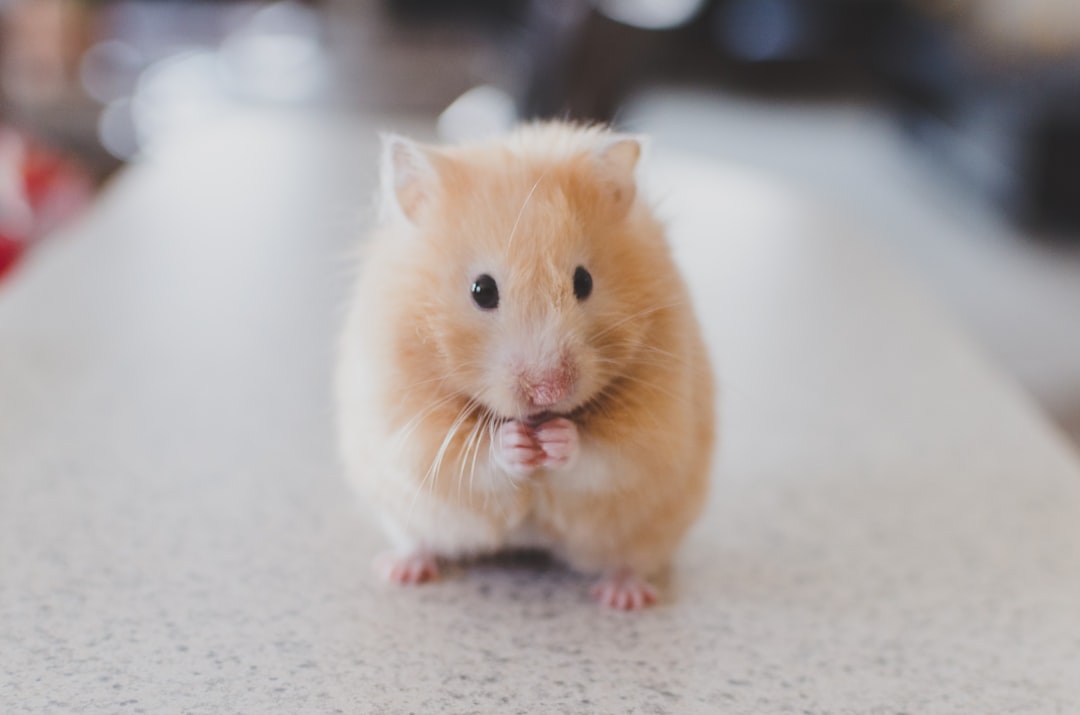Hamsters, those tiny bundles of energy and fluff, bring so much joy to our lives! As responsible hamster parents, we always want the best for them, and that includes providing a nutritious and safe diet. You might be wondering if you can share a little bit of your yogurt with your furry friend. So, can hamsters eat yogurt? Let’s dive into the details!
Can Hamsters Eat Yogurt? The Short Answer
Yes, hamsters can eat yogurt, but only in very small amounts and as an occasional treat. Not all yogurts are created equal, and some are definitely better (and safer) for your little companion than others. The key is to choose plain, unsweetened yogurt with live and active cultures. Avoid yogurts with added sugars, artificial sweeteners, fruits, or flavors, as these can be harmful to your hamster’s health.
Potential Benefits of Yogurt for Hamsters
While yogurt should only be a small part of your hamster’s diet, it can offer a few potential benefits when given appropriately:
- Probiotics: Yogurt with live and active cultures contains probiotics, which are beneficial bacteria that can help support a healthy gut microbiome in hamsters. A healthy gut can improve digestion and boost the immune system.
- Calcium: Yogurt is a source of calcium, which is important for maintaining strong bones and teeth.
- Protein: Yogurt provides a small amount of protein, which is essential for overall health and muscle development.
Risks of Feeding Yogurt to Hamsters
It’s crucial to be aware of the potential risks before offering yogurt to your hamster:
- Sugar Content: Most commercially available yogurts are loaded with sugar, which can lead to obesity, dental problems, and diabetes in hamsters. High sugar intake can also disrupt the delicate balance of bacteria in their gut.
- Lactose Intolerance: While yogurt contains less lactose than milk due to the fermentation process, some hamsters may still be sensitive to it. This can cause digestive upset, such as diarrhea.
- Artificial Additives: Artificial sweeteners, flavors, and colors can be toxic to hamsters and should be strictly avoided.
- Spoilage: Yogurt spoils quickly, especially at room temperature. Leftover yogurt in your hamster’s cage can become a breeding ground for bacteria and attract pests.
How to Introduce Yogurt to Your Hamster Safely
If you decide to give your hamster yogurt, follow these guidelines to minimize the risks:
- Choose the Right Yogurt: Opt for plain, unsweetened yogurt with live and active cultures. Greek yogurt is a good option as it’s typically lower in lactose and higher in protein. Check the ingredient list carefully to ensure there are no added sugars, artificial sweeteners, fruits, or flavors.
- Start Small: Introduce yogurt in very small amounts, such as a tiny lick from your finger or a quarter of a teaspoon. Observe your hamster for any signs of digestive upset, such as diarrhea or bloating.
- Frequency: Offer yogurt as an occasional treat, no more than once or twice a week.
- Hygiene: Always use a clean spoon or dish to serve the yogurt. Remove any uneaten yogurt from the cage within a few hours to prevent spoilage.
- Monitor Your Hamster: Watch for any changes in your hamster’s behavior, appetite, or stool. If you notice any signs of illness, discontinue feeding yogurt and consult with a veterinarian.
Yogurt Alternatives for Hamsters
If you’re concerned about the risks of feeding yogurt to your hamster, there are plenty of other healthy and safe treat options available:
- Fresh Vegetables: Offer small pieces of hamster-safe vegetables like broccoli, carrots, cucumber, or spinach.
- Fruits (in moderation): Small pieces of fruits like apples (without seeds), bananas, or blueberries can be given as occasional treats. Remember that fruits are high in sugar, so moderation is key.
- Seeds and Nuts: Offer a small amount of unsalted seeds or nuts, such as sunflower seeds, pumpkin seeds, or walnuts. These are high in fat, so give them sparingly.
- Commercial Hamster Treats: Choose high-quality hamster treats that are specifically formulated for their nutritional needs. Look for treats that are low in sugar and artificial additives.
Frequently Asked Questions
Can hamsters eat Greek yogurt?
Yes, plain, unsweetened Greek yogurt can be a better option than regular yogurt because it tends to be lower in lactose and higher in protein. However, portion control and careful ingredient checking are still crucial.
Can hamsters eat flavored yogurt?
No, flavored yogurt is not recommended for hamsters. It often contains high amounts of sugar and artificial additives that can be harmful to their health.
What are the signs of yogurt intolerance in hamsters?
Signs of yogurt intolerance in hamsters include diarrhea, bloating, gas, loss of appetite, and lethargy. If you notice any of these symptoms after feeding your hamster yogurt, discontinue use and consult with a veterinarian.
How much yogurt is too much for a hamster?
A safe serving size of plain, unsweetened yogurt for a hamster is no more than a quarter of a teaspoon, given only once or twice a week.
Can baby hamsters eat yogurt?
It’s generally not recommended to give yogurt to baby hamsters. Their digestive systems are still developing, and they are more sensitive to dietary changes. Focus on providing them with a high-quality hamster food and fresh water.
In conclusion, while hamsters can technically eat yogurt, it’s important to exercise caution and choose the right type of yogurt. Plain, unsweetened yogurt with live and active cultures can offer some benefits, but it should only be given in very small amounts as an occasional treat. Always prioritize your hamster’s health by carefully monitoring their reaction to new foods and consulting with a veterinarian if you have any concerns. By following these guidelines, you can ensure that your furry friend enjoys a safe and balanced diet!

